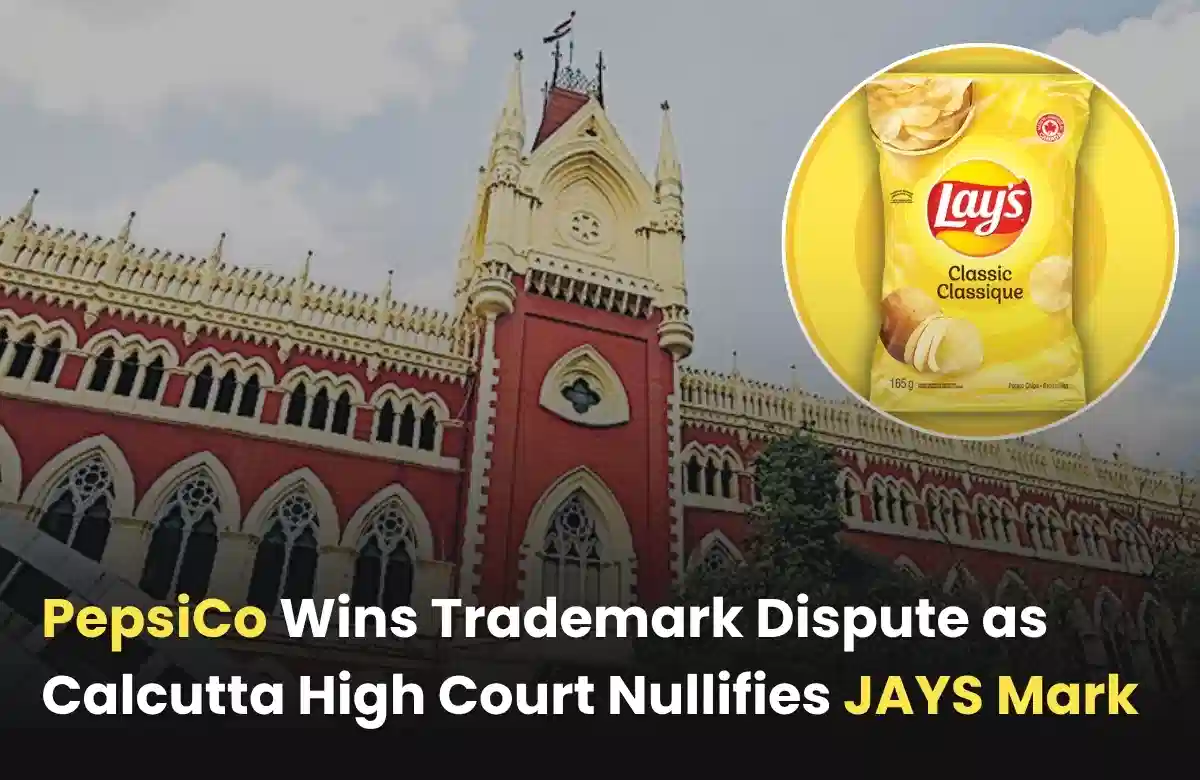
Trademark protection is super important because it helps you safeguard your brand’s unique identity—and it also gives you the right to stop others from using names that look or sound like yours. A perfect example of this is the recent LAYS vs JAYS Trademark case involving PepsiCo’s popular snack brand Lay’s. The Calcutta High Court stepped in after finding that another brand, Jay’s, had a name that was too similar and could confuse customers. This case shows how big brands actively defend their trademark to protect their reputation and prevent others from gaining an unfair advantage. Keep reading to explore more updates and interesting IP news from India and around the world.
What Is the Background Behind the LAYS vs JAYS Trademark Case?
Before we get into anything else, it’s important to understand how the LAYS vs JAYS Trademark case actually began. The issue started when Jagdamba Foods registered the name “Jay’s” for its snack products, even though PepsiCo had already been selling “Lay’s” in India since the 1960s. After some time, PepsiCo noticed that “Jay’s” looked and sounded a lot like “Lay’s,” and since both brands were selling the same kind of snacks, it could easily confuse customers. Because of this, PepsiCo filed a case under the Trade Marks Act and challenged the “Jay’s” mark. This makes it clear why businesses should complete proper trademark registration to avoid such legal issues
In the lawsuit, Lay’s didn’t ask for any money—they only wanted the “Jay’s” trademark to be cancelled. They also wanted the Court to accept that both names were almost the same and that Lay’s had been in the market much longer. Overall, PepsiCo simply wanted to protect its brand and stop any similar names from confusing people.
Read Also: India Strengthens Innovation Standing with 6th Global Patent Rank
Why Did the Calcutta High Court Order the Cancellation of the JAYS Trademark?
After the case went back and forth for some time and eventually reached the Calcutta High Court, things finally became clear. The Court decided to side with Lay’s and ruled that the “Jay’s” trademark should be cancelled. The reasons were pretty simple:
- When the judges compared the two names, they found that “Jay’s” and “Lay’s” sounded almost identical and were being used for the same type of snack products, which could easily confuse customers.
- The Court also noted that PepsiCo had been using the Lay’s brand for decades and had strong goodwill in the market, while Jagdamba Foods didn’t even show up to defend its trademark.
- Because of all this, the Court felt that “Jay’s” was adopted in bad faith and was just too similar to “Lay’s.” In the end, the Court ordered that the “Jay’s” trademark be removed from the official register.
This case is important because it shows why trademarks really matter for every business, no matter the size. The Lay’s vs. Jay’s fight proves that even small similarities in brand names can cause big confusion—and even bigger legal problems. It also reminds us that well-known brands have a lot of power when it comes to protecting their identity. For newer companies, it’s a clear sign to pick a name that’s truly original and not too close to anyone else’s. Overall, this case teaches us to do proper trademark checks and respect IP rules so things don’t get messy later.
Conclusion
The LAYS vs JAYS Trademark case shows how important it is for brands to protect their identity and take trademark issues seriously. The court’s decision makes it clear that even small similarities can cause confusion and won’t be ignored. With the “Jay’s” trademark now cancelled, this case becomes a strong reminder for companies to choose unique names and avoid copying well-known brands.
Read Also: Glucon-D Loses Interim Trademark Fight Against Glucose-D in Himachal Pradesh High Court
